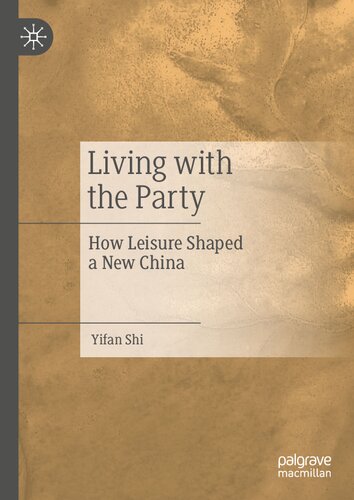

Most ebook files are in PDF format, so you can easily read them using various software such as Foxit Reader or directly on the Google Chrome browser.
Some ebook files are released by publishers in other formats such as .awz, .mobi, .epub, .fb2, etc. You may need to install specific software to read these formats on mobile/PC, such as Calibre.
Please read the tutorial at this link: https://ebookbell.com/faq
We offer FREE conversion to the popular formats you request; however, this may take some time. Therefore, right after payment, please email us, and we will try to provide the service as quickly as possible.
For some exceptional file formats or broken links (if any), please refrain from opening any disputes. Instead, email us first, and we will try to assist within a maximum of 6 hours.
EbookBell Team

5.0
110 reviewsIt argues that while the CCP aimed to direct the most private sphere in people’s everyday life (i.e., leisure), it did not achieve this goal by coercive means, but by appealing ways through organized leisure activities.
This book suggests that although elements of youth subcultures can be observed throughout the Mao era, we should not treat them as a way of passive resistance. Instead, we must position these subcultures between different layers of the Party’s leisure regulation to examine what the CCP actually achieved. Many people who engaged in subcultures defied the blatant politicization of their leisure, some might have defied the process of collectivization, but few defied the process of institutionalization during which people did not find state intervention contradictory to their own way of pleasure-seeking.
This book also suggests that instead of regarding the Deng Xiaoping era as a breakaway from Maoist interventionist rule, we need to see the historical continuity as revealed by the Party’s uninterrupted policy of leisure regulation.
Thought provoking and at times amusing, this book will interest sinologists, historians, and scholars of China's social form.